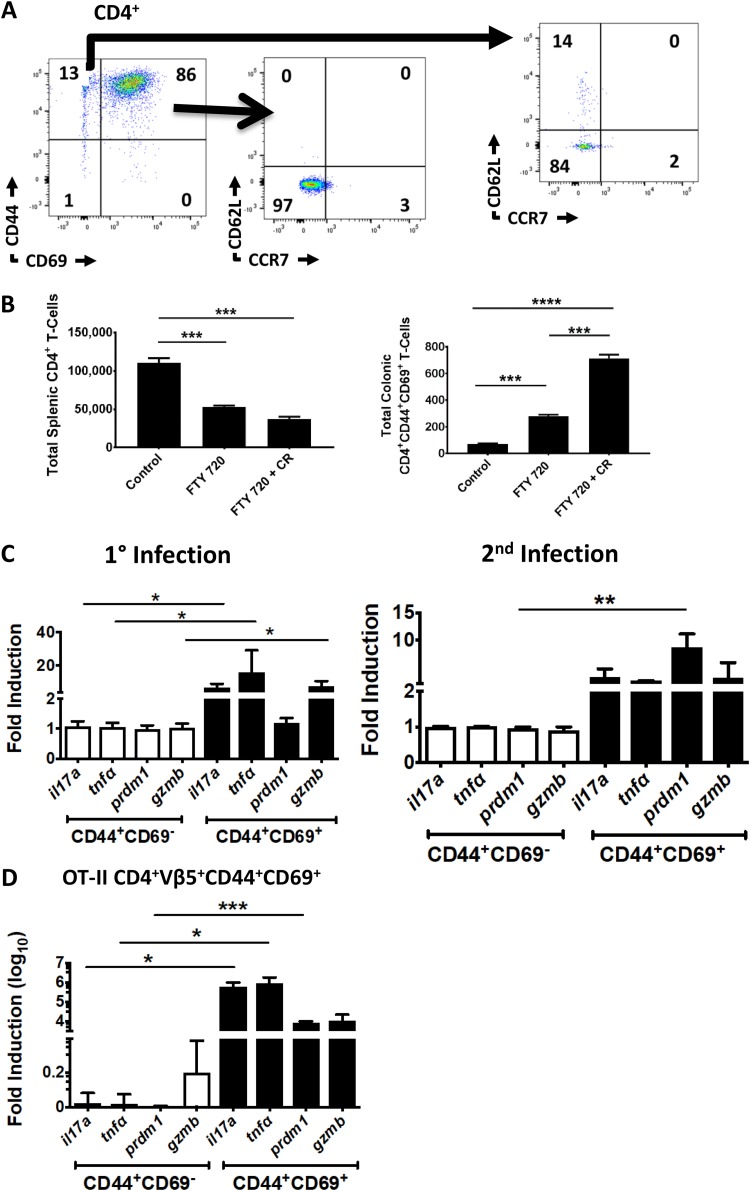FIG 2.
C. rodentium-induced CD4+ CD44+ CD69+ cells are nonrecirculating and contain an antigen-specific subset. (A) C. rodentium-induced CD4+ CD44+ CD69+ T cells do not express lymph node homing markers. Expression of the lymph node homing markers CD62L (L-selectin) and CCR7 was determined on CD4+ CD44+ CD69+ and CD4+ CD44+ CD69− mucosal T cells 8 weeks after C. rodentium infection. (B) C. rodentium-induced CD4+ CD44+ CD69+ T cells do not recirculate. The total number of CD4+ T cells in the spleen (left panel) and CD4+ CD44+ CD69+ T cells in the colon (right panel) was enumerated with flow cytometry in uninfected WT mice (control) and mice administered FTY 720 with or without prior C. rodentium (CR) infection. (C) Mucosal CD4+ CD44+ CD69+ T cells contain a C. rodentium antigen-specific population over the long term after C. rodentium infection. Expression of genes associated with C. rodentium-induced Th17 cells was determined in the CD69+ and CD69− fractions of FACS-purified CD4+ CD44+ mucosal T cells in WT mice 8 weeks after primary infection (left panel) or 10 days after secondary infection (right panel). (D) Antigen-specific Th17 cells are contained in the CD4+ CD44+ CD69+ fraction in OT-II mice. CD4+ Vβ5+ CD44+ CD69+ colonic T cells were FACS purified from OT-II mice 10 days after inoculation with OVA-expressing C. rodentium, and expression of the selected genes was determined. Data are normalized to GAPDH and presented as fold induction over CD4+ CD44+ CD69− fractions for panels C and D. The experiment in panel A is representative of 6 mice. Each time point in panel B consists of 9 mice. Experiments in panels C and D were performed twice with 3 mice per trial (6 mice total). *, P < 0.5; **, P ≤ 0.01; ***, P ≤ 0.001; ****, P < 0.0001, by ANOVA.

